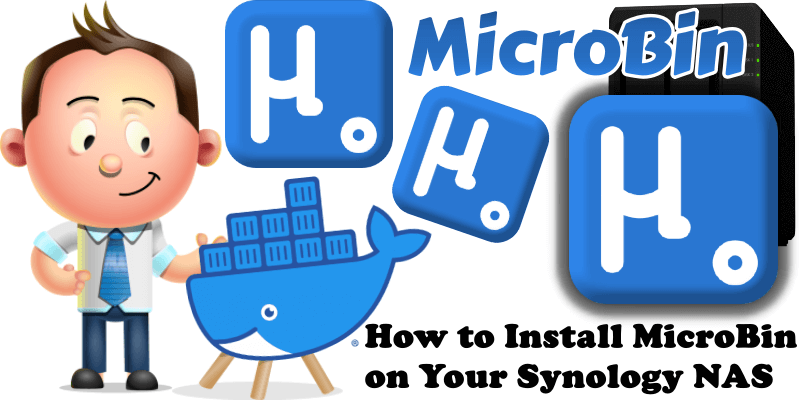
MicroBin is a super tiny, feature rich, configurable, self-contained and self-hosted paste bin web application. It is very easy to set up and use, and will only require a few megabytes of memory and disk storage. It takes only a couple seconds to set it up. In this step by step guide I will show you how to Install MicroBin on Your Synology NAS.
This guide works perfectly with the latest MicroBin v2.0.4 release.
STEP 1
Please Support My work by Making a Donation.
STEP 2
Install Container Manager via Synology “Package Center”. If you run an older DSM version (under 7.2), search for Docker instead of Container Manager.
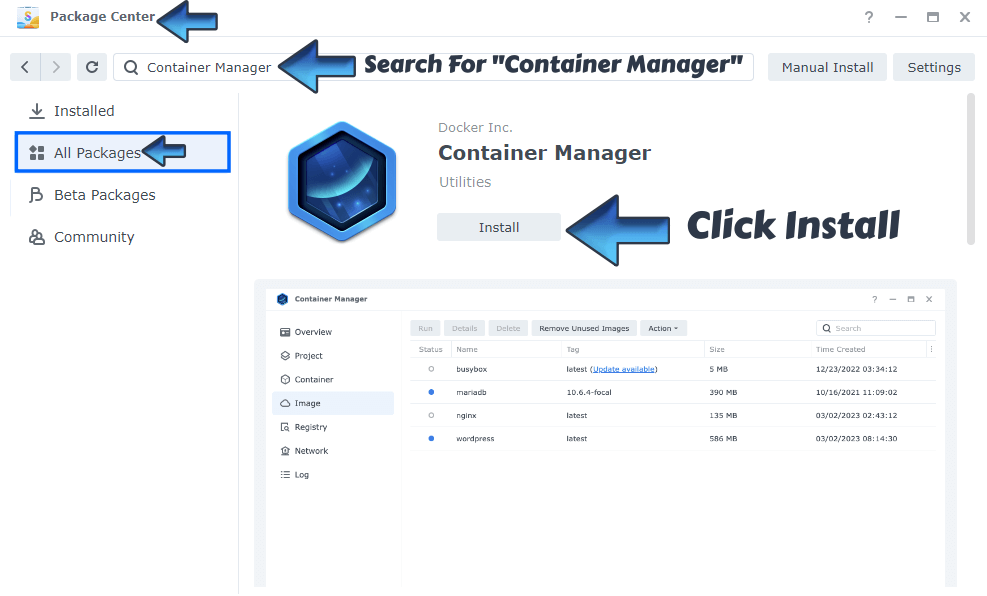
STEP 3
Make sure you have a synology.me Wildcard Certificate. Follow my guide to get a Wildcard Certificate. If you already have a synology.me Wildcard certificate, skip this STEP.
STEP 4
Go to Control Panel / Login Portal / Advanced Tab / click Reverse Proxy. Follow the instructions in the image below.
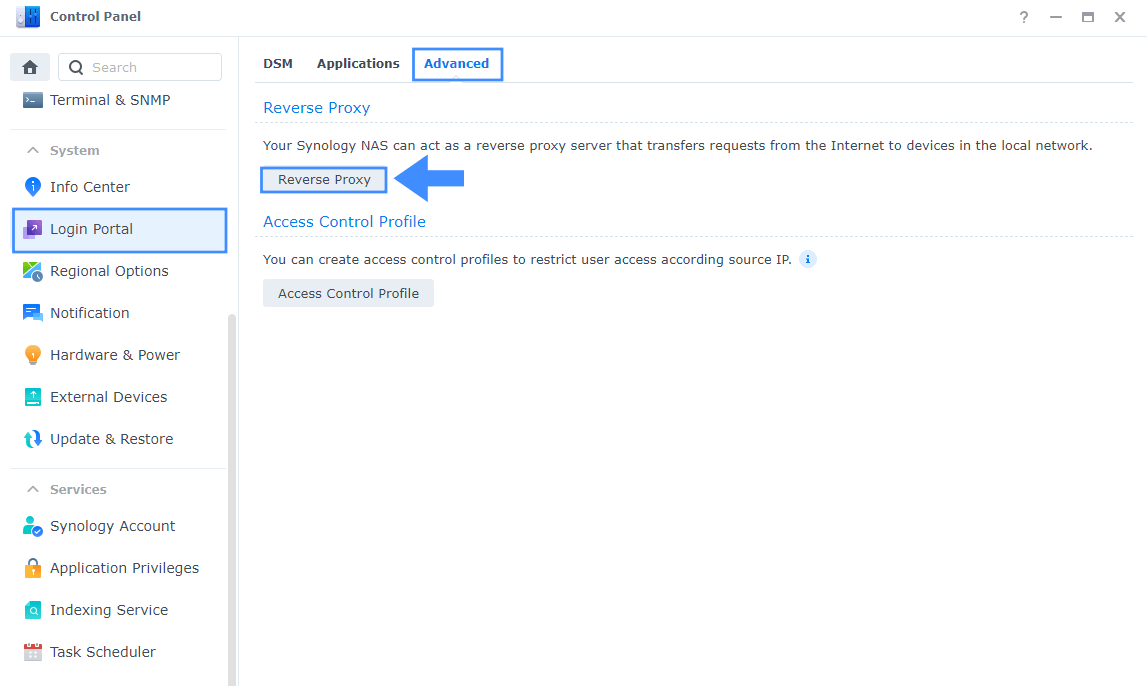
STEP 5
Now click the “Create” button. Follow the instructions in the image below.
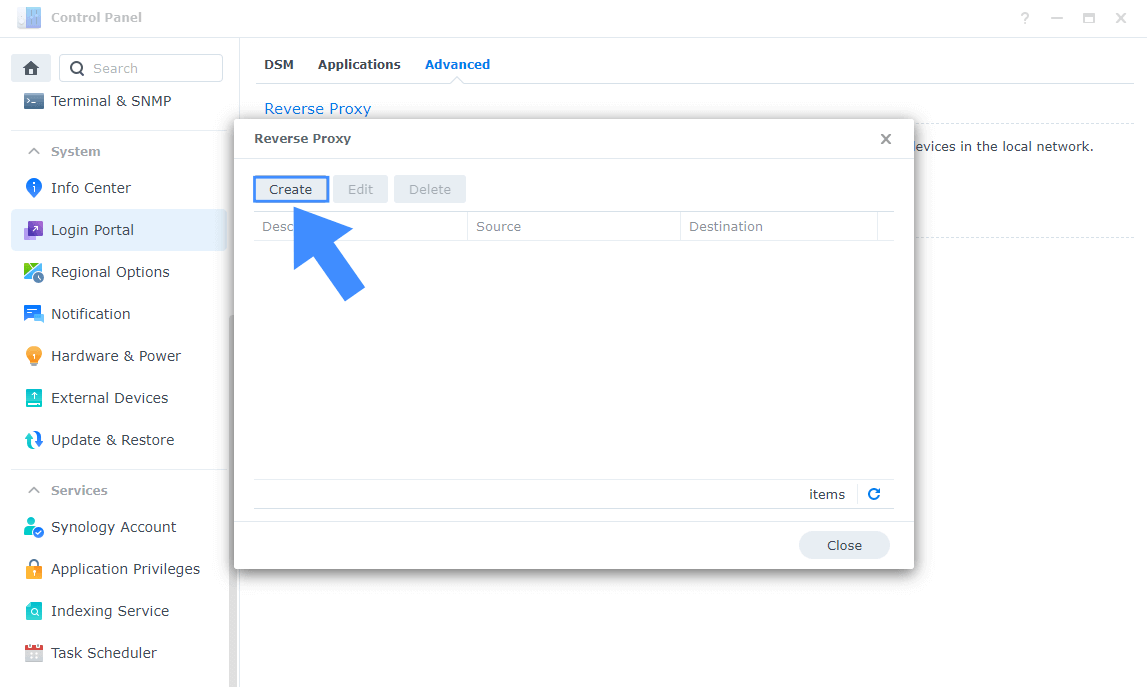
STEP 6
After you click the Create button, the window below will open. Follow the instructions in the image below.
On the General area, set the Reverse Proxy Name description: type in MicroBin. After that, add the following instructions:
Source:
Protocol: HTTPS
Hostname: microbin.yourname.synology.me
Port: 443
Check Enable HSTS
Destination:
Protocol: HTTP
Hostname: localhost
Port: 5980
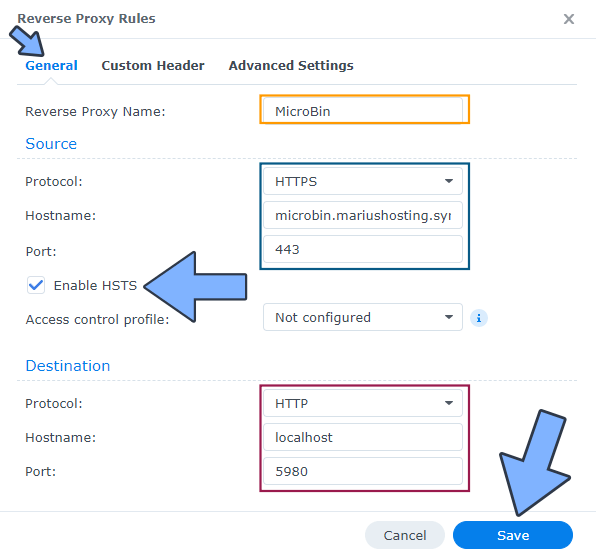
STEP 7
On the Reverse Proxy Rules, click the Custom Header tab. Click Create and then, from the drop-down menu, click WebSocket. After you click on WebSocket, two Header Names and two Values will be automatically added. Click Save. Follow the instructions in the image below.

STEP 8
Go to Control Panel / Network / Connectivity tab/ Check Enable HTTP/2 then click Apply. Follow the instructions in the image below.
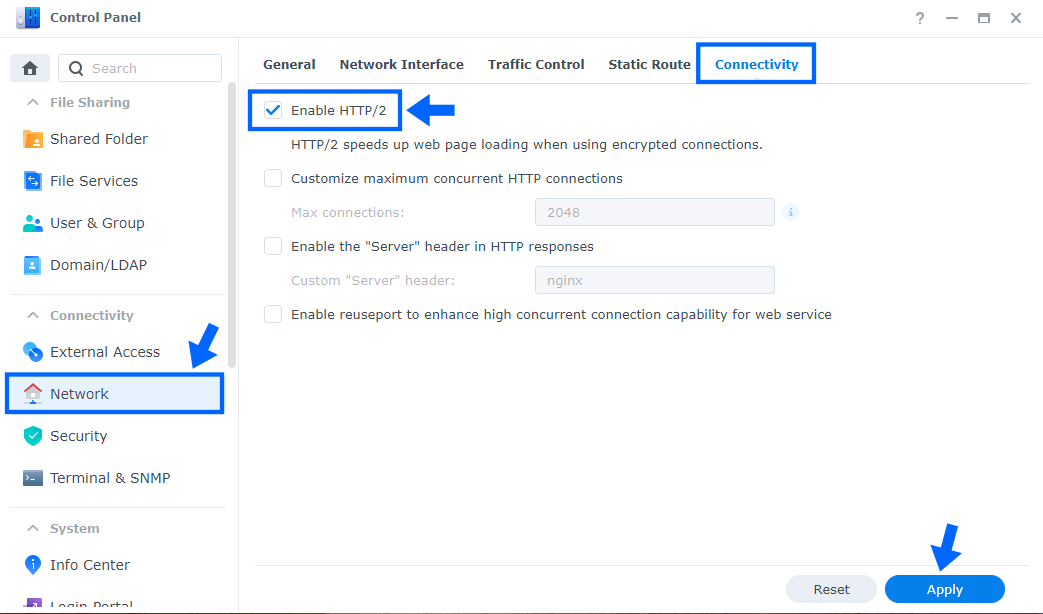
STEP 9
Go to Control Panel / Security / Advanced tab/ Check Enable HTTP Compression then click Apply. Follow the instructions in the image below.
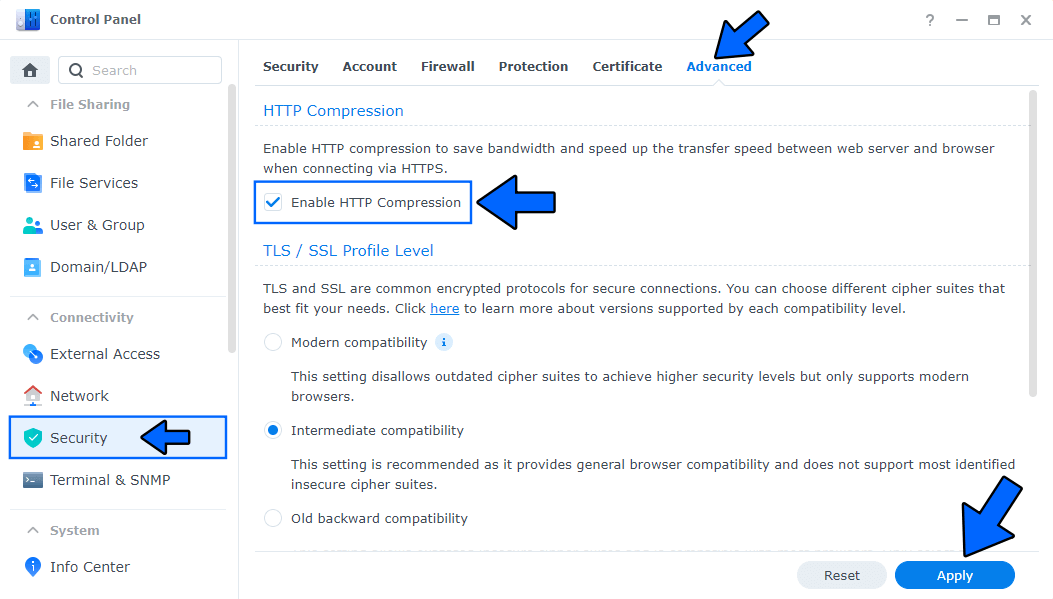
STEP 10
Go to File Station and open the docker folder. Inside the docker folder, create one new folder and name it microbin. Follow the instructions in the image below.
Note: Be careful to enter only lowercase, not uppercase letters.
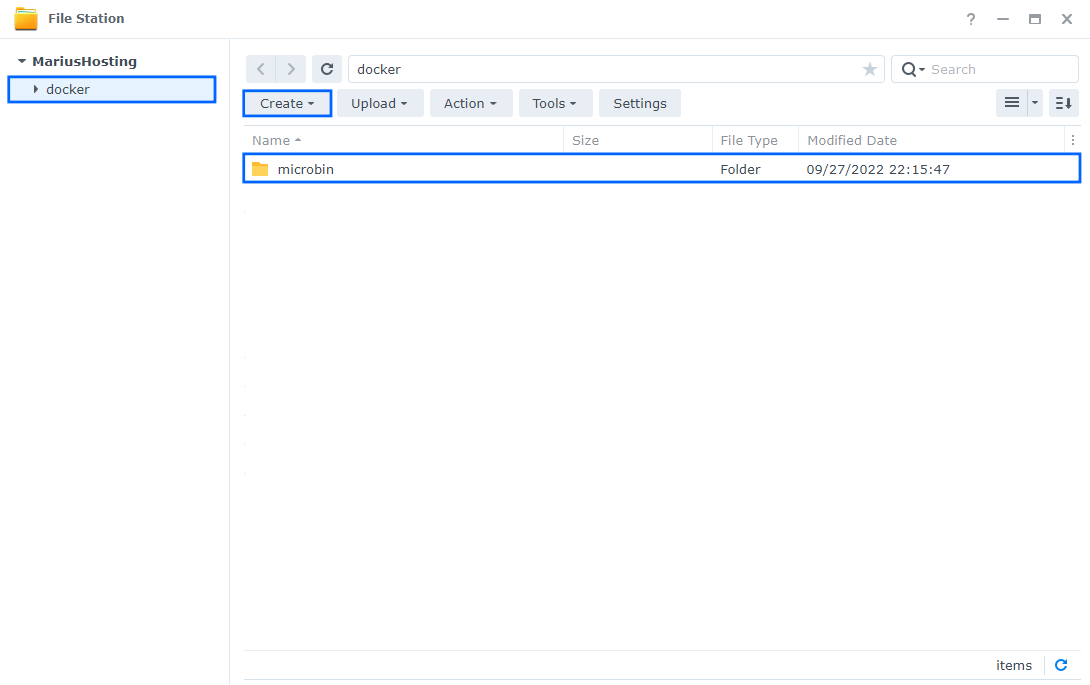
STEP 11
Go to Control Panel / Task Scheduler / Create / Scheduled Task / User-defined script. Follow the instructions in the image below.
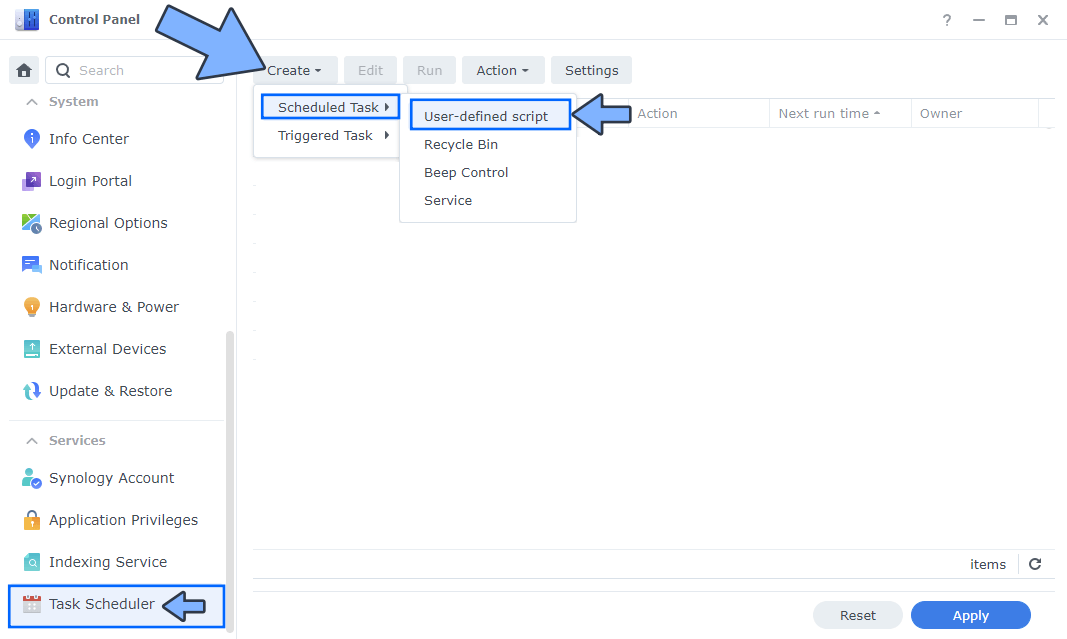
STEP 12
Once you click on User-defined script, a new window will open. Follow the instructions below:
- General: In the Task field type in Install MicroBin. Uncheck the “Enabled” option. Select root User.
- Schedule: Select Run on the following date then select “Do not repeat“.
- Task Settings: Check “Send run details by email“, add your email then copy paste the code below in the Run command area. After that, click OK.
docker run -d --name=MircoBin \ -p 5980:8080 \ -v /volume1/docker/microbin:/app/microbin_data \ -e MICROBIN_ADMIN_USERNAME=marius \ -e MICROBIN_ADMIN_PASSWORD=mariushosting \ -e MICROBIN_PUBLIC_PATH=https://microbin.yourname.synology.me \ --restart always \ danielszabo99/microbin
Note: Before you paste the code above in the Web editor area below, change the value for MICROBIN_ADMIN_USERNAME and type in your own username. marius is an example for an username you should use your own username.
Note: Before you paste the code above in the Web editor area below, change the value for MICROBIN_ADMIN_PASSWORD and type in your own password. mariushosting is an example for a password you should use your own password.
Note: Before you paste the code above in the Web editor area below, change the value for MICROBIN_PUBLIC_PATH and type in your own synology.me DDNS with https:// at the beginning that you have previously created at STEP 6.
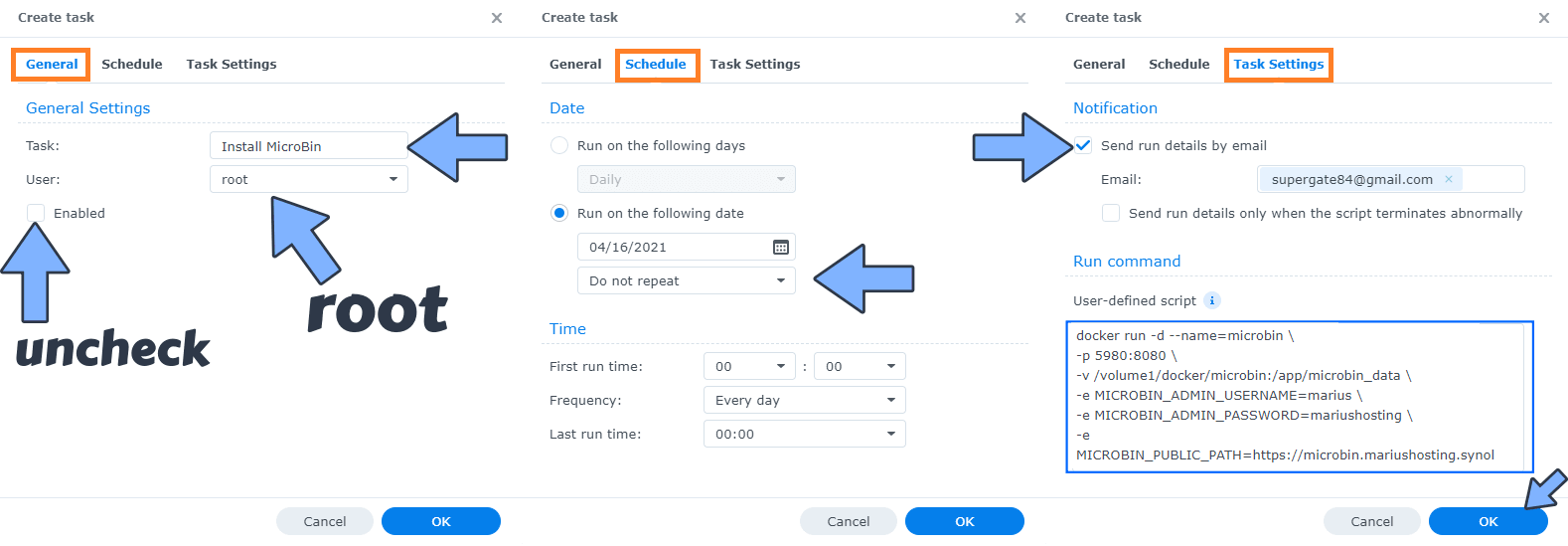
STEP 13
After you click OK on STEP 12 a new warning pop up window will open. Click OK.
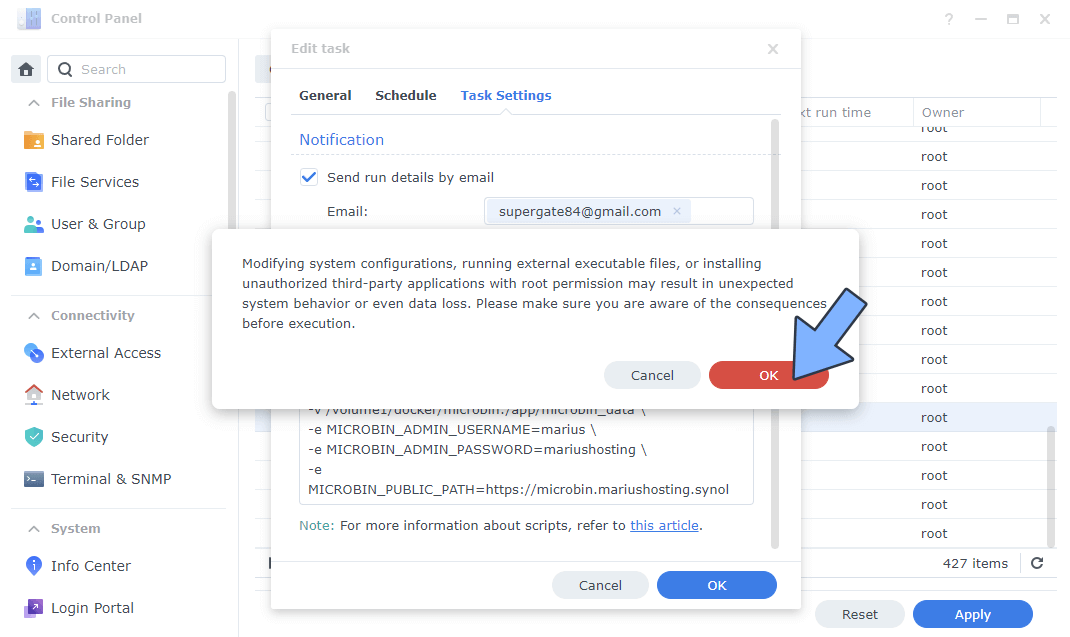
After you click OK, type in your DSM Password then click Submit. Follow the instructions in the image below.
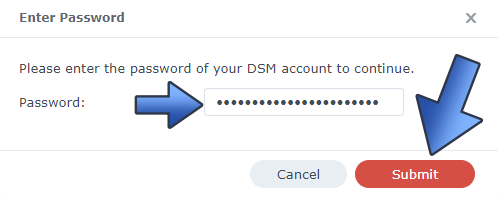
STEP 14
After you click Submit on STEP 13, select your “Install MicroBin” Task, then click the “Run” tab. You will be asked to run Install MicroBin – click OK. Follow the instructions in the image below.
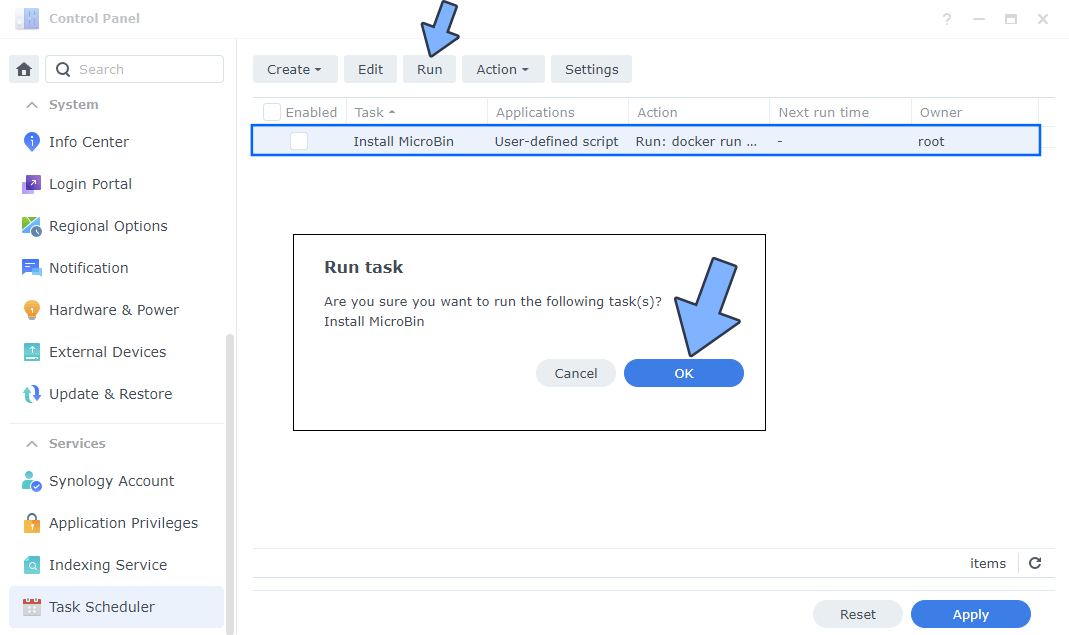
STEP 15
🟢Please Support My work by Making a Donation. Almost 99,9% of the people that install something using my guides forget to support my work, or just ignore STEP 1. I’ve been very honest about this aspect of my work since the beginning: I don’t run any ADS, I don’t require subscriptions, paid or otherwise, I don’t collect IPs, emails, and I don’t have any referral links from Amazon or other merchants. I also don’t have any POP-UPs or COOKIES. I have repeatedly been told over the years how much I have contributed to the community. It’s something I love doing and have been honest about my passion since the beginning. But I also Need The Community to Support me Back to be able to continue doing this work.
STEP 16
Now open your browser and type in your HTTPS/SSL certificate like this https://microbin.yourname.synology.me In my case it’s https://microbin.mariushosting.synology.me If everything goes right, you will see the microbin page. Add an expiration date, add the content, attach a file then click Save. Follow the instructions in the image below.
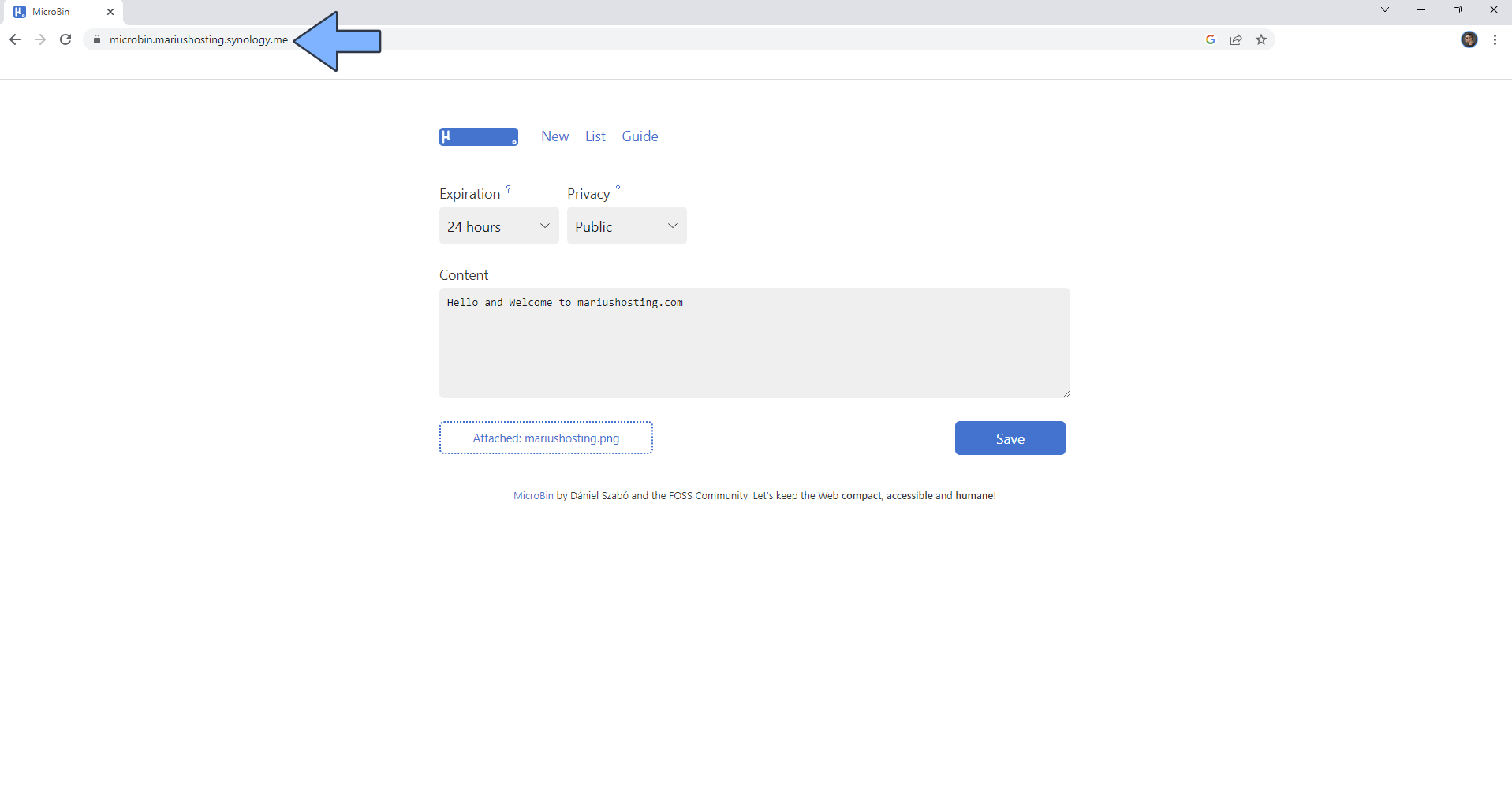
STEP 17
Your personalized link at a glance!
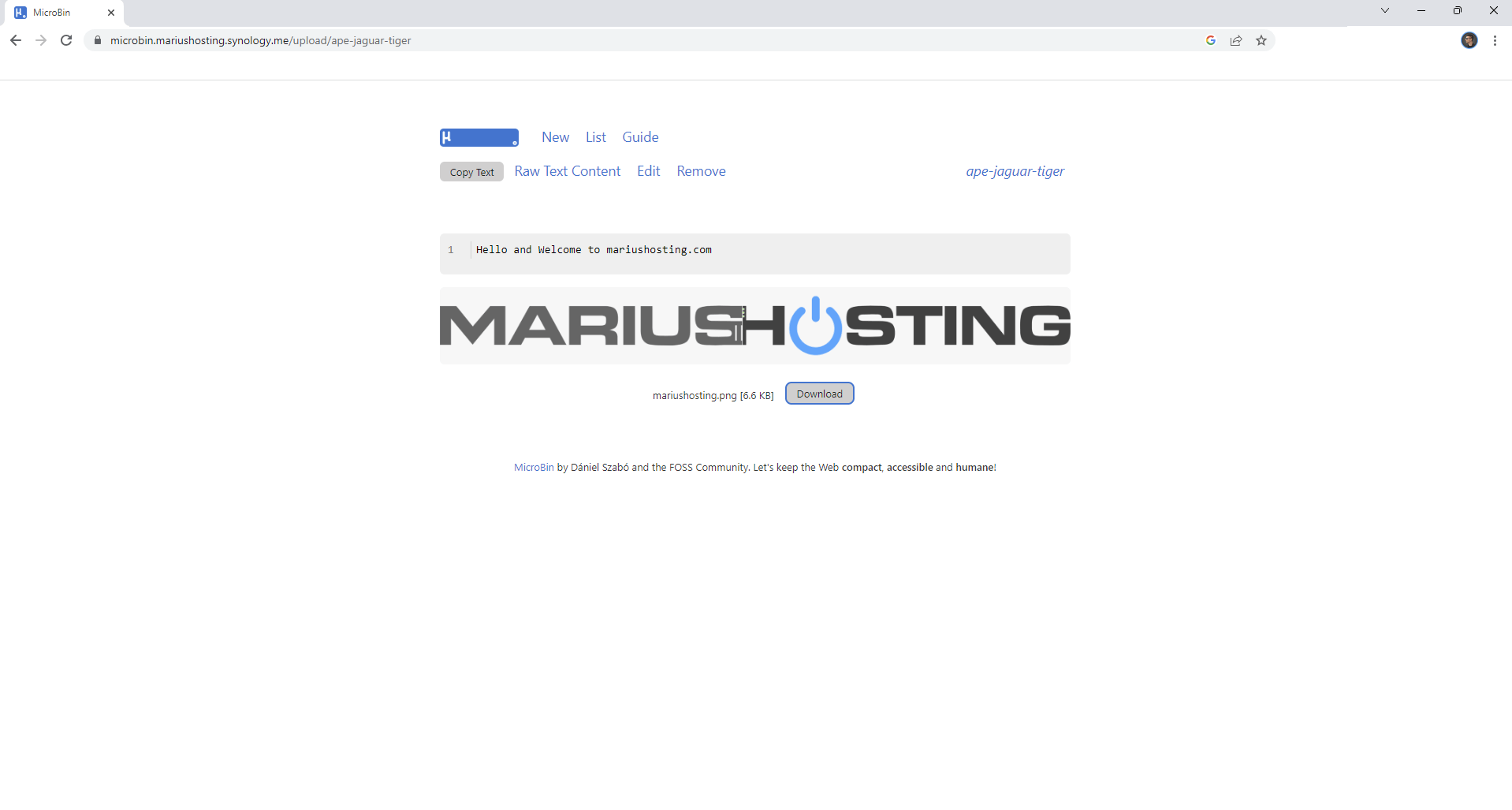
STEP 18
If you want to access the MicroBin admin area, open your browser and type in your HTTPS/SSL certificate like this https://microbin.yourname.synology.me/admin In my case it’s https://microbin.mariushosting.synology.me/admin Type in the Administrator Username and Password that you have previously created at STEP 12 then click Sign in. Follow the instructions in the image below.
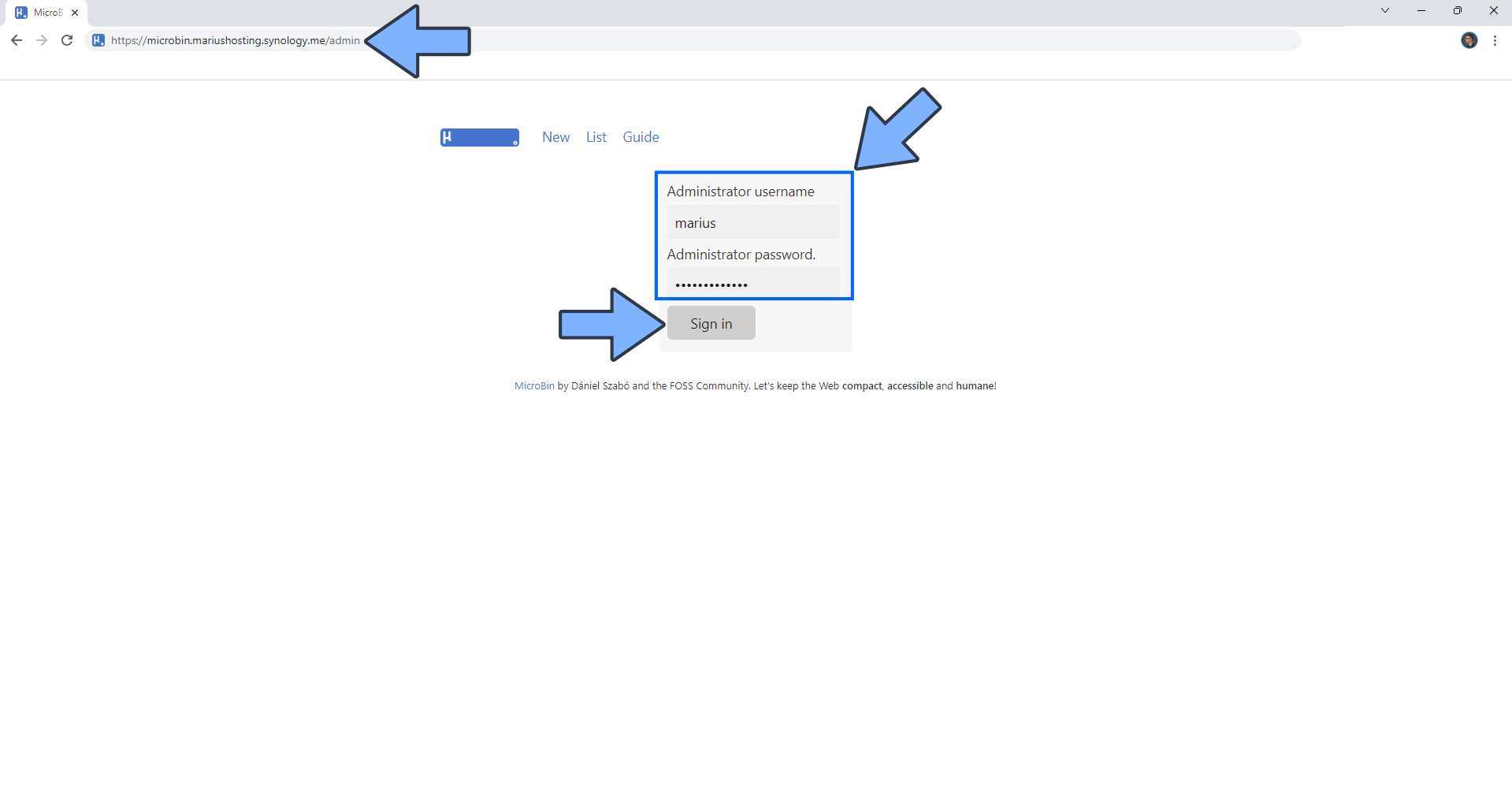
STEP 19
Your administrator dashboard at a glance!
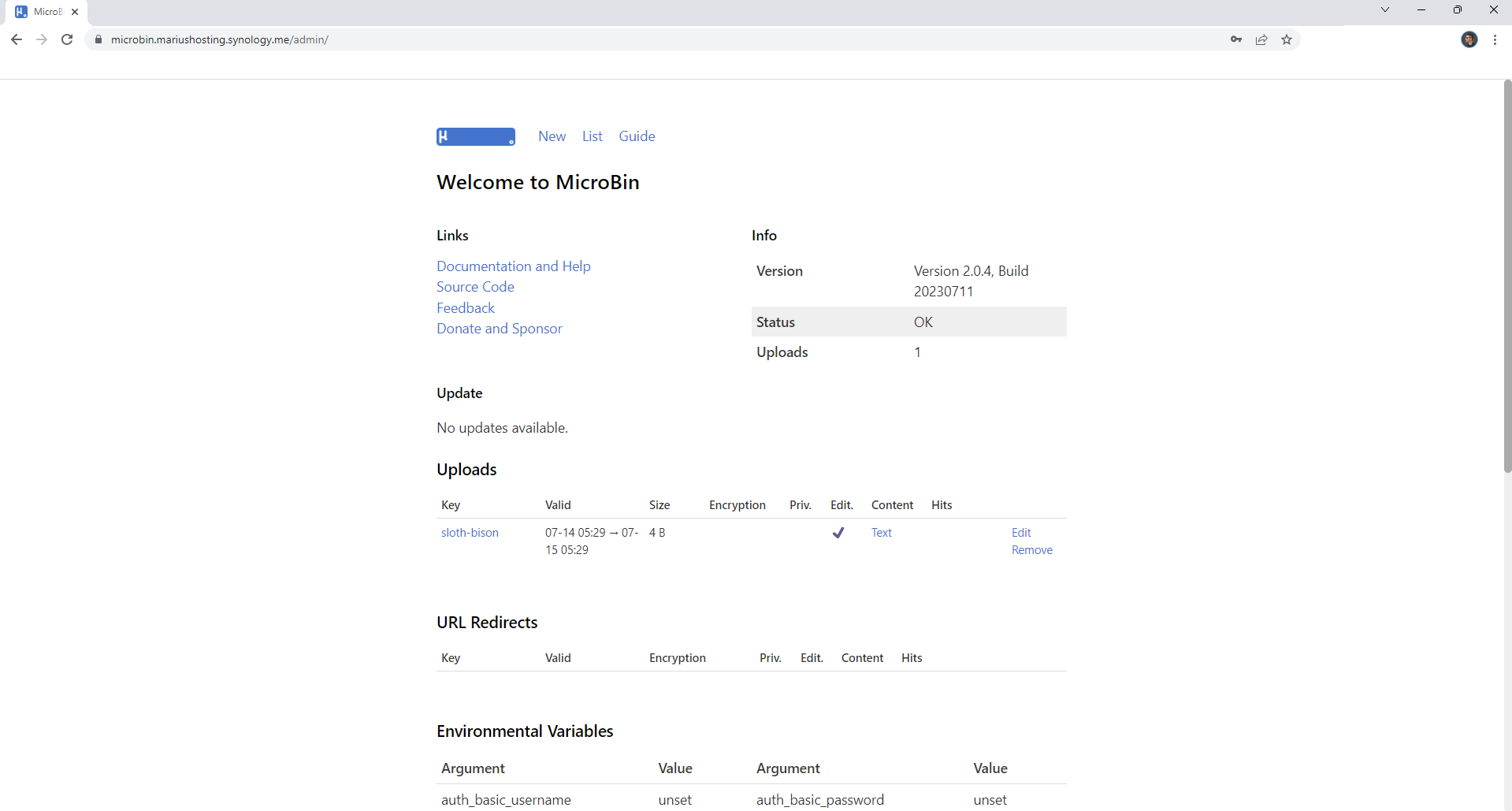
Enjoy MicroBin!
If you encounter issues by using this container, make sure to check out the Common Docker issues article.
Note: Check out the full list of MicroBin environment variables.
Note: Can I run Docker on my Synology NAS? See the supported models.
Note: How to Back Up Docker Containers on your Synology NAS.
Note: Find out how to update the MicroBin container with the latest image.
Note: How to Free Disk Space on Your NAS if You Run Docker.
Note: Instead of the synology.me DDNS you can also use your own domain name.
Note: How to Schedule Start & Stop For Docker Containers.
Note: How to Activate Email Notifications.
Note: How to Add Access Control Profile on Your NAS.
Note: How to Change Docker Containers Restart Policy.
Note: How to Use Docker Containers With VPN.
Note: Convert Docker Run Into Docker Compose.
Note: How to Clean Docker.
Note: How to Clean Docker Automatically.
Note: Best Practices When Using Docker and DDNS.
Note: Some Docker Containers Need WebSocket.
Note: Find out the Best NAS Models For Docker.
Note: Activate Gmail SMTP For Docker Containers.
This post was updated on Thursday / August 28th, 2025 at 4:58 PM
